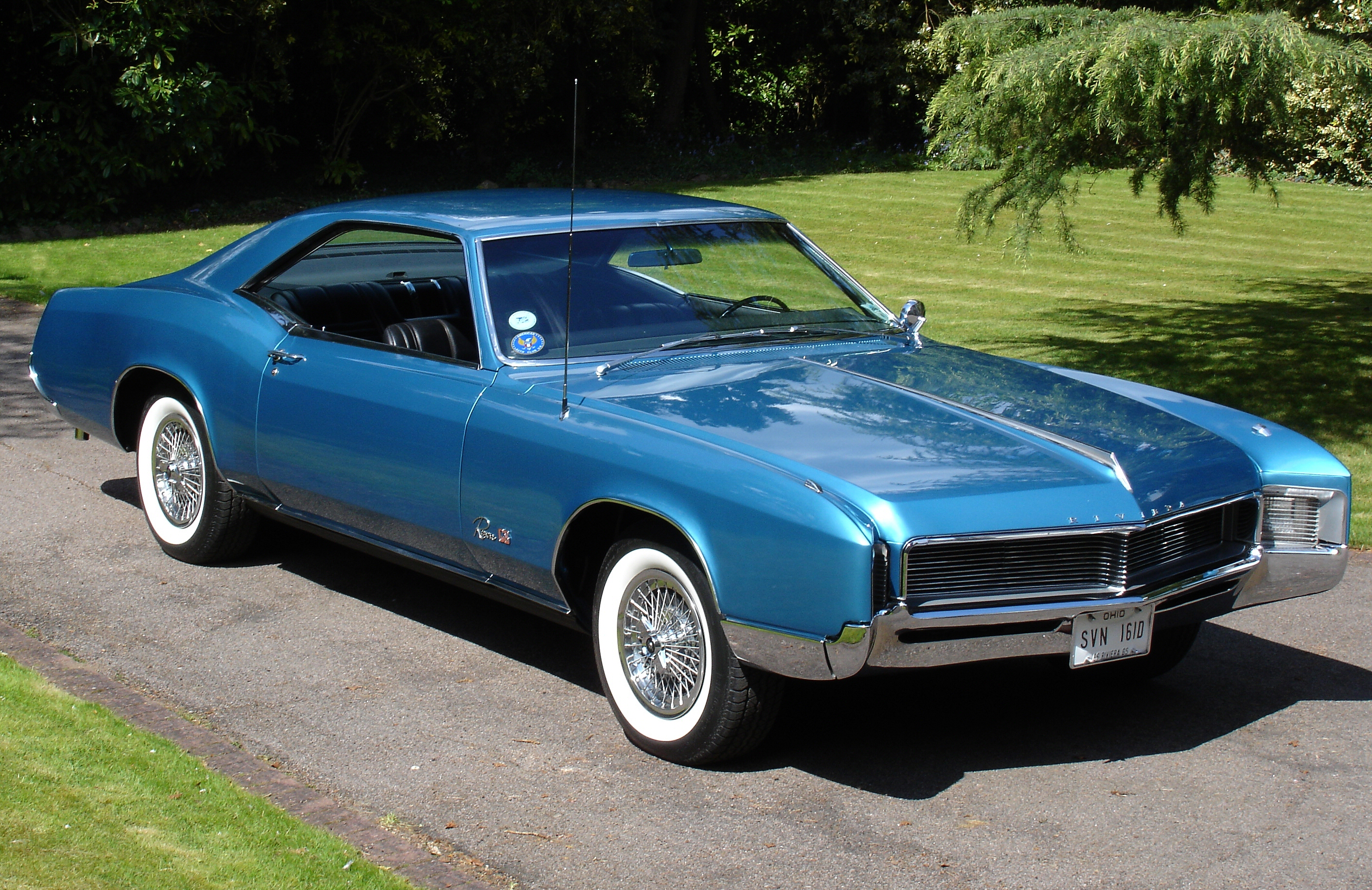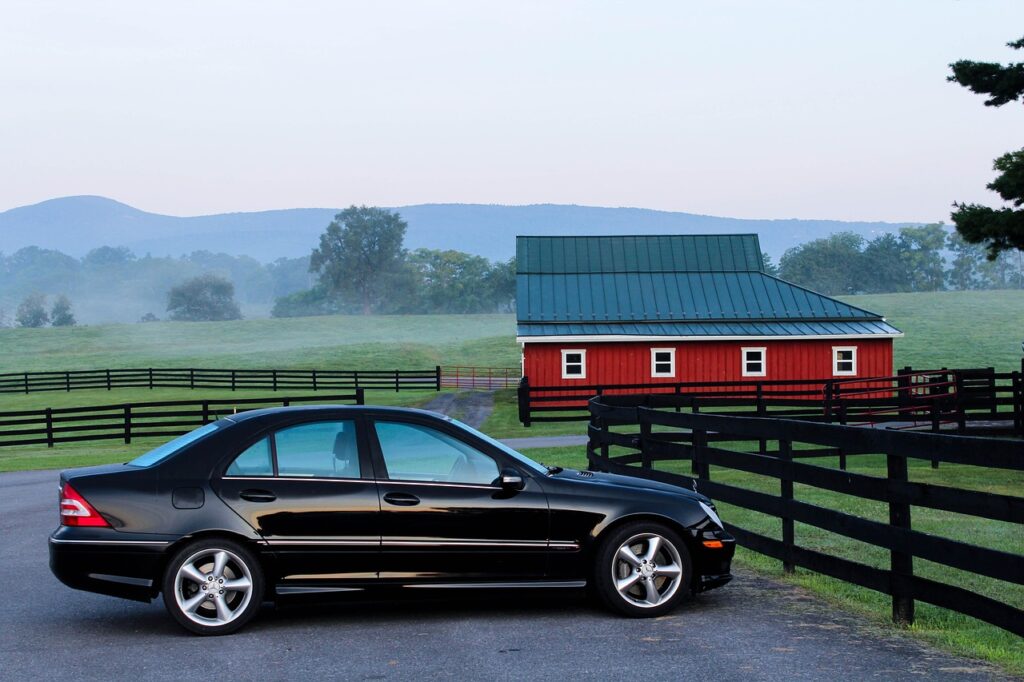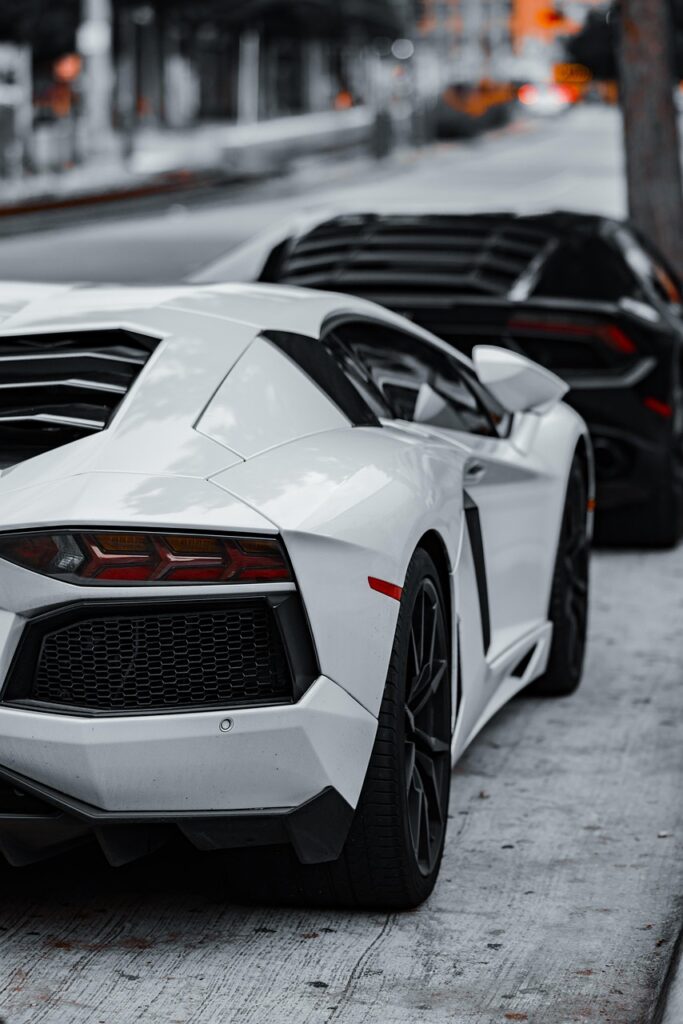
The rumble of a luxury engine, the gleam of polished chrome, the distinctive silhouette of a high-end vehicle – these aren’t just features of automotive design; they’re statements. What we drive often reveals more about our personality and perceived social standing than imagined. Luxury cars indicate personality types, with different models appealing to different individuals.
While these associations can feel stereotypical, they are stereotypes deeply embedded in motoring society. They’re not just casual observations; some even find grounding in social psychology. A recent study from the University of Helsinki, for instance, set out to uncover whether certain individuals—particularly those described as aggressive or antagonistic—tend to gravitate towards high-status cars, defined in their research to include brands like Audi, BMW, Jaguar, Lexus, and Mercedes-Benz.
As senior media editors, we’ve seen these perceptions play out time and again. The fascination with what a car says about its owner isn’t new, but understanding the nuances behind these “stuck-up” stereotypes can offer compelling insights into human behavior, self-expression, and the subtle signals we send on the road. Let’s delve into luxury models and their owner stereotypes, exploring whether you might be driving a “stuck-up” ride, or simply misunderstood.

1. **Audi: The Assertive A-Lister with an Attitude**Audi drivers often find themselves at the center of some of the strongest stereotypes, frequently labeled as the “worst drivers on the road.” This perception is so prevalent that it’s often presented as a “fact,” with an alleged tendency towards severe road rage if someone dares to drive even a mile below the speed limit. This aggressive driving isn’t just anecdotal; it’s a noted characteristic.
Further reinforcing this image, Audi owners are often stereotyped as high earners who, ironically, might hate their jobs. This internal dissatisfaction, it’s suggested, manifests in their leisure activities, such as reclaiming their youth by holidaying in destinations like Ibiza and Ayia Napa, even as they approach 40. The stereotype extends to social habits, portraying them as frequenters of VIP booths in the *fanciest* clubs, perhaps to compensate for professional disillusionment.
The “stuck-up” perception for Audi drivers is often linked to a competitive and confrontational nature. They are depicted as individuals who like to start fights at nightclubs and act tough in front of bouncers, especially when friends are around. This behavior is even humorously linked to the winter months, when they might wear tight-fitting polo shirts and skinny jeans, needing to “pick fights to keep warm.” It paints a picture of someone eager to display dominance and assertiveness in all aspects of life.
Beyond social settings, Audi drivers are also known for their penchant for talking about “Quattro or Bitcoin.” The stereotype suggests that they might brag about blindly trading a few hundred dollars for a modest return while driving through a snowstorm, as if this experience inherently makes them superior. This demonstrates a desire to showcase perceived financial savvy and technical knowledge, often in a way that can come across as boastful or exclusionary to others.
The University of Helsinki study, which included Audi among “high-status cars,” found that disagreeable men — those who are argumentative, stubborn, and unempathetic — were more likely to drive these vehicles. This scientific observation lends a deeper layer to the stereotype, suggesting that underlying personality traits might indeed dispose certain people to purchase high-status cars like an Audi, further solidifying the perception of a “stuck-up” owner.
Read more about: Beyond the Chrome: Unpacking the 12 Most Notorious Cars Saddled with a ‘Troublesome Driver’ Stigma – And What Really Drives Those Labels
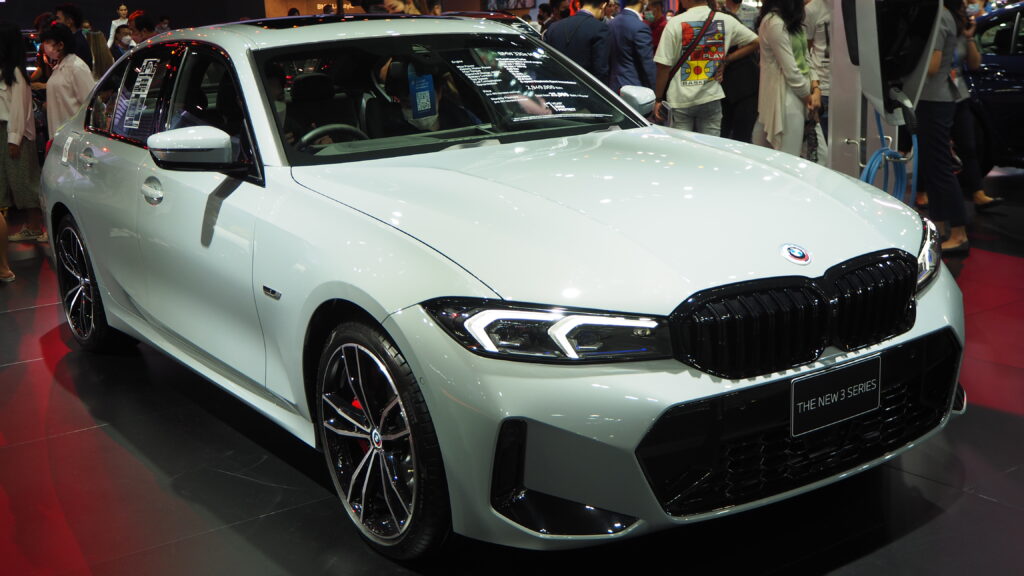
2. **BMW: The Non-Indicating “Leader” Who Hates to Lose**BMW drivers share many characteristics with their Audi counterparts, often falling into a similar “ilk” of luxury car owners. A pervasive and enduring stereotype is that BMW drivers have “no idea what a turn signal is.” This isn’t just a casual observation; it’s humorously suggested that “teams of people in Germany who are tasked with installing blinker systems on these cars” might feel their life has no purpose because the signals are so rarely used.
This lack of indicating isn’t attributed solely to arrogance or poor driving skills, though also cited. Some theories even suggest that BMW drivers have given up trying to master the “absolutely useless BMW indicator stalks.” Regardless of the reason, the outcome is a perceived disregard for other road users, fostering a strong “stuck-up” image. This behavior aligns with the study finding that “upper-class individuals” are more likely to violate traffic codes because they feel entitled.
The stereotype suggests that a BMW driver might have treated themselves to a brand-spanking-new vehicle after suddenly acquiring a lot of disposable income. They are described as often labeling themselves a “businessman,” yet when pressed to elaborate on their enterprise, they will “refuse to divulge what that business is.” This opaque self-description contributes to an air of perceived superiority, avoiding common explanations for their wealth.
BMW owners often describe themselves as “leaders” and genuinely “can’t deal with losing,” which speaks to a highly competitive and driven personality. Their love for their cars stems from a passion for performance, enjoying nothing more than hitting top speed and feeling the handling at their fingertips. This focus on personal driving pleasure, while understandable, sometimes comes at the expense of consideration for others on the road, contributing to their reputation.
Further solidifying the “stuck-up” stereotype, one humorous take suggests that BMW drivers “obtained their driving licenses by buying it from the black market.” Their insurance policies are humorously noted to be truthful only about their mother’s details, who has been added as a named driver to bring down “astronomical premium prices.” This playfully implies a tendency towards bending rules and a reliance on others, while maintaining an outward appearance of success and independence.

3. **Mercedes-Benz: The Meticulous Mirror-Gazer**Mercedes-Benz owners are often characterized by their meticulous nature and an eye for detail. Unlike BMW drivers who prioritize performance and speed, Mercedes owners tend to worry less about flying along a country road and more about comfort and relaxation. This preference for luxury and refined interiors speaks to a discerning individual valuing state-of-the-art amenities and premium materials.
However, this attention to personal comfort and detail can swing into a “stuck-up” stereotype, particularly concerning appearance. Mercedes owners are humorously accused of spending “at least 4 hours on Instagram each day” and being “known to photoshop their own photos for better jawlines, slimmer figures and whiter teeth.” This suggests a significant preoccupation with self-image and presenting a flawless, often augmented, version of themselves to the world.
The pursuit of perfect aesthetics is further highlighted by the stereotype that “whiter teeth usually isn’t a problem for Mercedes drivers as they have already been to Thailand to get cheap veneers.” This implies a willingness to go to great lengths to maintain their desired image, reinforcing a perception of vanity and superficial perfection.
In terms of social standing, Mercedes owners are often sorted into two distinct categories: “Those that own a Rolex and those that haven’t finished the finance application form yet.” This observation speaks volumes about the aspirational aspect of Mercedes ownership, suggesting that for many, it’s a vehicle acquired to project an image of wealth and success, whether fully achieved or still in pursuit. It highlights the brand’s role as a potent status symbol.
The University of Helsinki study also included Mercedes-Benz in its list of “high-status cars.” While the study found that disagreeable men were less likely to drive these cars, it also noted that both men and women with high levels of conscientiousness – meaning they are thoughtful and pay attention to details – were likely to drive these luxury cars. This duality presents Mercedes owners as either meticulously self-aware or meticulously self-absorbed, adding complexity to their “stuck-up” reputation.
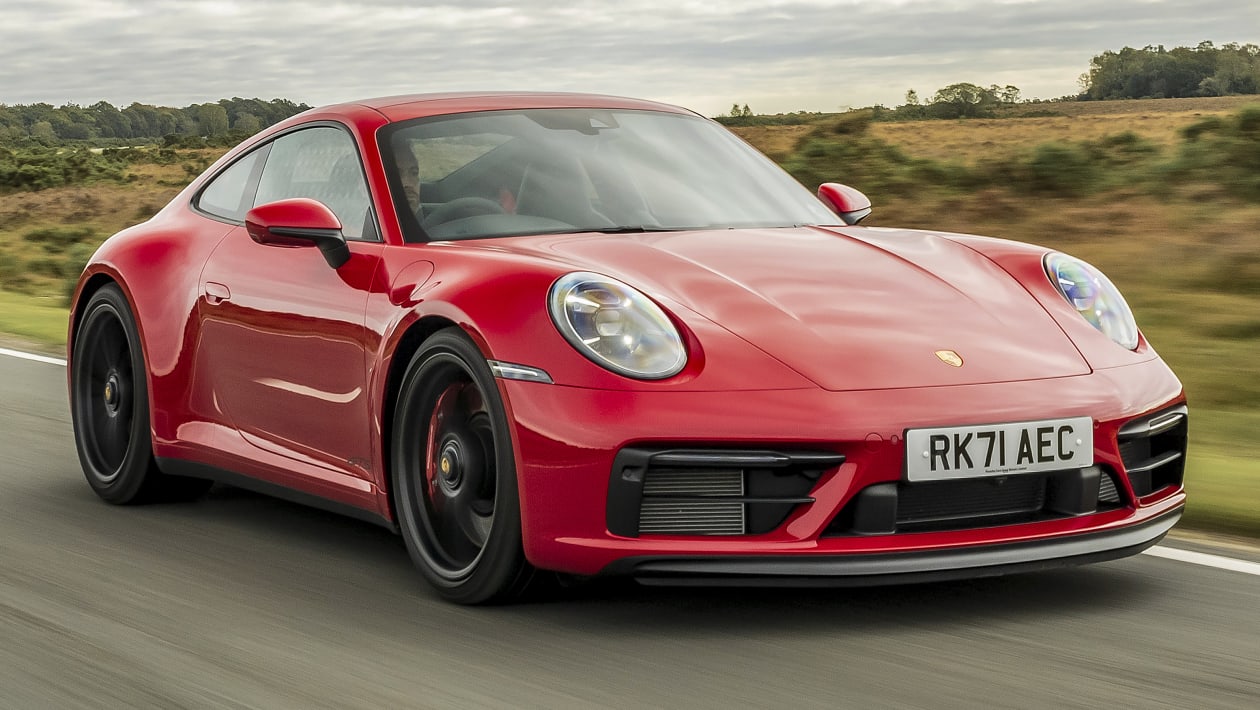
4. **Porsche: The Intellectual Enthusiast with “Sex Appeal”**Porsche owners are often stereotyped as individuals who are, or aspire to be, successful. They are frequently described as quite intellectual car owners who take pride in their vehicle, often preferring to do fixes and improvements to their own car. This suggests hands-on engagement and deep appreciation for the engineering and craftsmanship.
Beyond the mechanical appreciation, a significant part of the Porsche owner stereotype revolves around the ” appeal” their car provides. They are depicted as finding “nothing better than getting a cheeky glance as they drive down the street.” This pursuit of admiration and validation hints at a desire for external recognition and self-indulgence, perceived as “stuck-up.”
The intellectual aspect also extends to their enthusiasm for the brand’s heritage. Porsche owners will readily “celebrate their brands racing tradition,” showcasing a deep knowledge and connection to the performance legacy. They typically seek out “quiet roads as much as they can to feel the power and acceleration their car has to offer,” emphasizing a personal, high-performance driving experience that can be exclusive and focused on self-gratification.
A rather pointed stereotype suggests that “all Porsche drivers are dentists.” This humorous generalization, while not factually accurate, serves as a cultural shorthand for a particular demographic perceived to have achieved a certain level of professional and financial success. It also implies a predictable, perhaps uninspired, choice of luxury vehicle, almost daring them to “try something comparable but not as obvious. Like a Tesla.”
The perception of Porsche owners as embodying “sophistication, refinement, and exclusivity” is widely acknowledged. While these qualities are desirable, they can also contribute to an aura of aloofness or perceived superiority. The emphasis on “premium features, advanced technology, and superior performance” appeals to enthusiasts seeking a superior driving experience, which for some, translates into an entitlement that defines a “stuck-up” personality.

5. **Land Rover (Range Rover): The Entitled “King and Queen of the Road”**Range Rover owners are painted with a distinct “stuck-up” stereotype, often associated with a particular lifestyle aspiration: becoming a “Yummy Mummy.” The acquisition of a Range Rover is seen as a natural progression once this aspiration is achieved, a tangible symbol of their upper-middle-class status that they want “EVERYONE to know.”
This desire for public recognition manifests in specific behaviors, such as dropping “little darlings off on the school run” in their Range Rover, where they feel entitled to “double park by the gates.” This blatant disregard for parking rules exemplifies the perceived arrogance and entitlement associated with these drivers, believing their vehicle affords them special privileges.
The stereotype further suggests that after the school run, these owners head off to “visit your other Yummy Mummy friends for a spot of lunch, followed by copious amounts of skinny decaf lattes.” This portrayal reinforces an image of an exclusive social circle, perhaps overly focused on appearances and aspirational consumerism.
Despite their vehicles being engineered to “conquer some of the toughest terrains,” the stereotype maintains that “the only off-roading owners will ever do is driving up a slightly muddy track to get to their pheasant hunting grounds.” This highlights a perceived disconnect between the vehicle’s rugged capability and its owner’s actual usage, suggesting that the car is primarily for show and status, rather than practical utility.
Range Rover drivers are often perceived as acting like the “king and queen of the road,” believing their large, luxurious, and expensive vehicle entitles them to “a greater share of the road and also gives them the right to park wherever they want.” This sense of superiority, combined with the humorously cutting observation that “the Honda Civic that they are tailgating is worth more than their used Evoque that they got on finance,” really solidifies the “stuck-up” and perhaps even deluded perception of these drivers.
Car Model Information: 2019 Hyundai SANTA FE 2.4 Ultimate
Caption: 2022 Range Rover SE P440e (L460, fifth generation, United Kingdom)
Aka: unbulleted list
Name: Range Rover
Manufacturer: unbulleted list
Production: 1969–present
Assembly: unbulleted list
Class: unbulleted list
Layout: Front-engine, four-wheel-drive layout
Sp: uk
Categories: 1980s cars, 1990s cars, 2000s cars, 2010s cars, 2020s cars
Summary: The Land Rover Range Rover, generally shortened to Range Rover, is a 4WD luxury mid to full size crossover marque and sub-brand of Jaguar Land Rover, owned by India-based Tata Motors. The Range Rover line was launched in 1970 by British Leyland and since 2022 is in its fifth generation.
Additional models have been launched under the Range Rover name, including the Range Rover Sport, Range Rover Evoque, and Range Rover Velar.
Get more information about: Range Rover
Buying a high-performing used car >>>
Brand: Land Rover Model: Range Rover
Price: $21,898 Mileage: 51,164 mi.
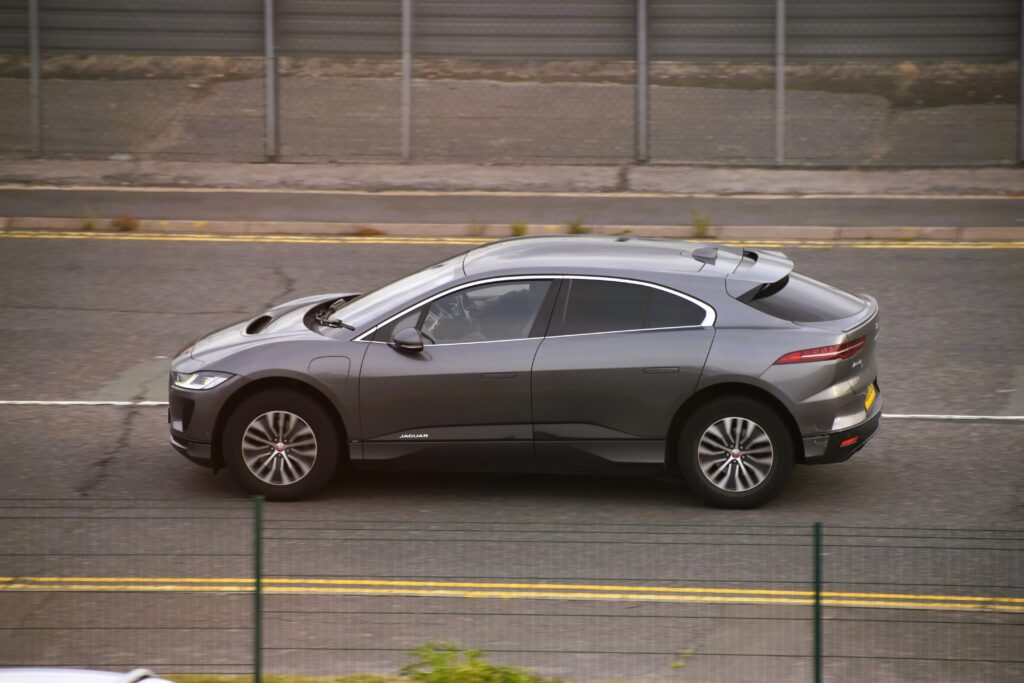
6. **Jaguar: The Aristocratic Guardian of the Road**Jaguar owners frequently carry a distinct aura of refined superiority, often portrayed as individuals for whom their vehicle is not just transportation but a cherished family member. The stereotype paints them as almost always British and typically of retirement age, meticulously caring for their car as if it were their child. This dedication extends to an unwavering commitment to annual services and a vigilant topping up of fluids, all to ensure the Jag remains in pristine condition, unmarred by the rigors of the road.
This fastidious nature, while admirable in terms of vehicle maintenance, can manifest as a perception of ‘stuck-up’ behavior on the road. Jaguar owners are humorously imagined driving 10 mph under the speed limit, not out of caution for themselves, but to protect their beloved vehicle from the ‘abrasive air’ potentially harming its paintwork. Such hyper-vigilance, combined with their stately presence, often creates an impression of aloofness or a sense of entitlement to dictate the pace of traffic.
Beyond their driving habits, Jaguar owners are often depicted as finding immense joy in engaging in deep conversations with fellow Jag enthusiasts. These gatherings in car parks become forums for passionately discussing their cars’ perceived superiority, a habit that underscores their brand loyalty and collective self-importance. These discussions often extend to broader, perhaps contentious, topics like politics, with a curious stereotype suggesting they can be found talking about figures like Donald Trump at parties, praising his ‘charisma’ and ‘gutsy opinions,’ further cementing an image of opinionated, self-assured individuals.
The inclusion of Jaguar in the University of Helsinki study as a ‘high-status car’ adds a layer of scientific observation to these anecdotal stereotypes. While the study primarily focused on disagreeable men, the overall perception aligns with owners who, through their meticulous care and sometimes outspoken opinions, consciously or unconsciously project an image of elevated social standing. This careful cultivation of their car’s image and their own, contributes significantly to the ‘stuck-up’ stereotype, presenting them as discerning individuals who believe their tastes and possessions are inherently superior.
/Tesla%20Inc%20tesla%20by-%20Iv-olga%20via%20Shutterstock.jpg)
7. **Tesla: The Tech-Savvy Environmentalist with a Superior Chip**Tesla owners represent a new frontier in luxury car stereotypes, moving beyond traditional markers of wealth to embrace a blend of financial success, technological appreciation, and environmental consciousness. Often described as having an ‘extortionate amount of money,’ these individuals are perceived as having ‘earnt it,’ viewing their substantial investment not just as a statement, but as a testament to their belief in cutting-edge technology and innovation. This focus on the car’s advanced features, rather than purely its aesthetics or brute power, sets them apart.
The stereotype suggests that Tesla owners care deeply about the technology inside their vehicles, admiring the gadgets and advancements that define the brand. They are fully aware that some might label them as ‘slightly dull’ for prioritizing function and innovation over traditional luxury flourishes, but they remain unbothered. For them, the Tesla is the perfect reflection of their love for tech, a choice that speaks to their identity as forward-thinkers and early adopters, often with a profound admiration for figures like Elon Musk, whom they deem an ‘icon.’
Driving an electric car, particularly a Tesla, is rapidly becoming a significant status symbol. This shift aligns with evolving societal values where environmental responsibility is gaining prestige, contrasting with the declining ‘cool’ factor of high-emission SUVs. Thus, Tesla owners might project a form of ‘stuck-up-ness’ rooted in perceived intellectual and environmental superiority, implicitly suggesting their choices are not only economically sound but also morally or futuristically advanced compared to conventional luxury car drivers.
This sense of enlightened consumerism can be a subtle form of arrogance. While they might not be overtly aggressive like some Audi or BMW drivers, their self-satisfaction in choosing a technologically superior and environmentally friendlier vehicle can be perceived as patronizing. They are, in essence, signaling their status through a different lens, one that combines wealth with a progressive mindset, making their ‘stuck-up’ image more about intellectual and ethical discernment than mere ostentation.
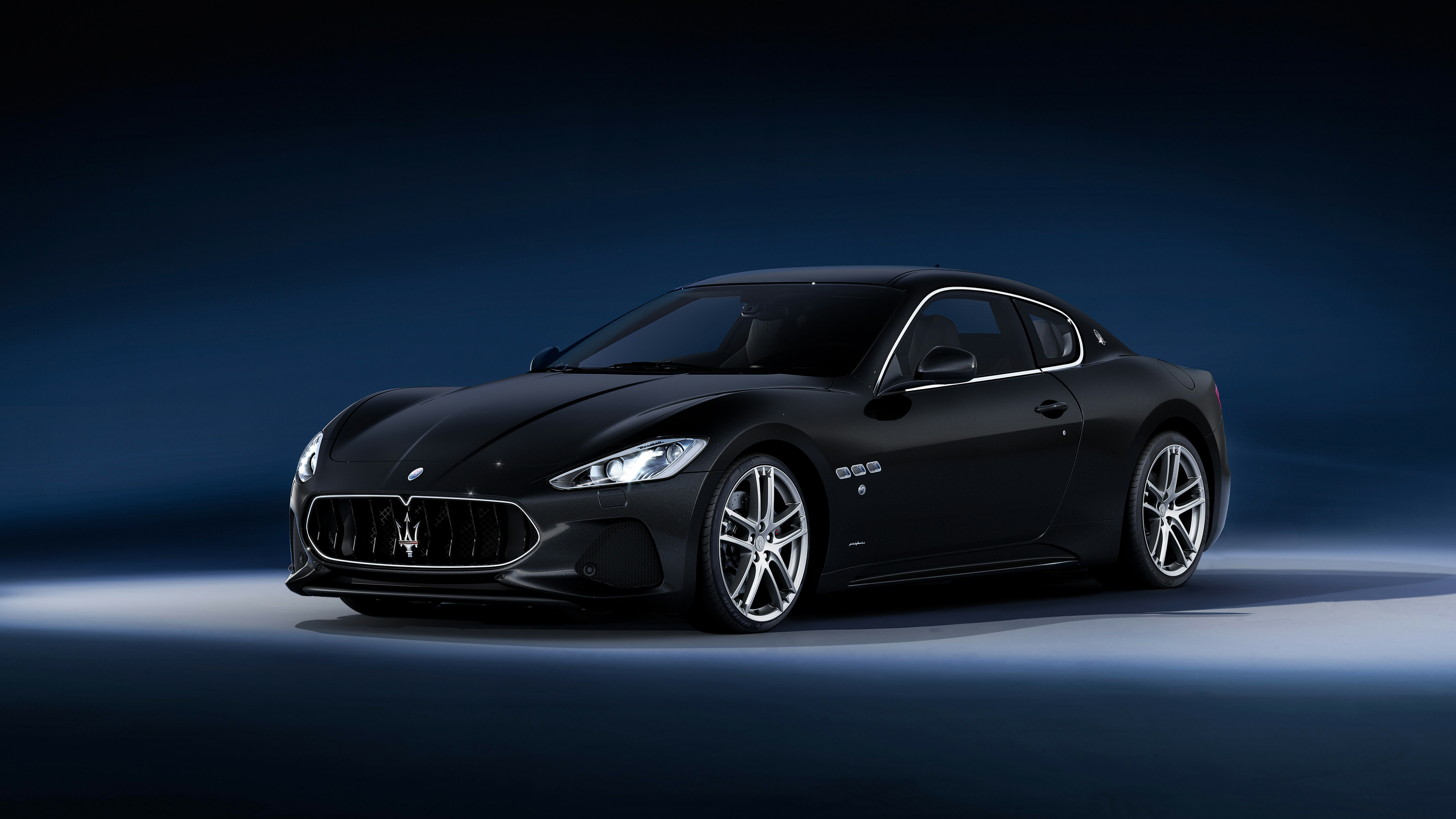
8. **Maserati: The Confident Connoisseur of Personal Pleasure**Maserati drivers inhabit a unique niche within the luxury car spectrum, often characterized as individuals who are ‘wealthy, cool, and confident.’ Unlike some luxury car owners who might openly flaunt their possessions, the stereotype for Maserati owners suggests a more introspective form of indulgence. They are described as people who buy cars primarily ‘for themselves,’ emphasizing that their choice is driven by personal satisfaction rather than a desire to impress others.
This focus on self-gratification is central to their perceived ‘stuck-up’ nature. While they may not be overtly ostentatious, their confidence and the fact that they own such an exclusive vehicle purely for their ‘feeling’ when driving it, can come across as subtly superior. It implies a level of self-assurance and an expectation of luxury that doesn’t require external validation, reinforcing an image of someone living in their own elevated world.
A Maserati owner is not typically seen as someone who would let their car become a mere ‘show car.’ Instead, the stereotype suggests they ‘know how to enjoy life,’ and their ‘dream car will be taken out at every opportunity.’ This reinforces the idea of a car being an extension of their lifestyle, deeply integrated into their personal pursuit of enjoyment and refined experiences. Their comfort with their own wealth and the understated power of their vehicle can lead to a perception of quiet, yet undeniable, confidence that borders on aloofness.
Therefore, the ‘stuck-up’ stereotype for Maserati owners isn’t about aggressive driving or social climbing, but rather a cultivated sense of self-importance and a focus on personal luxury that excludes external considerations. Their confidence in their choices and their enjoyment of the finer things in life, pursued for their own sake, can subtly communicate a sense of exclusivity and a detachment from the concerns or opinions of others, marking them as self-possessed connoisseurs.
.jpg/1200px-Aston_Martin_Vulcan_(27701406352).jpg)
9. **Aston Martin: The Classy Individualist with Bond-Level Taste**Aston Martin drivers are often depicted as the epitome of class and sophistication, individuals who inherently ‘know how to enjoy the finer things in life.’ This perception is heavily influenced by the brand’s iconic association with James Bond, lending an unparalleled coolness factor to its owners. Like Maserati drivers, the stereotype emphasizes that an Aston Martin is purchased not to impress onlookers, but for ‘how it makes the owner feel when driving it,’ highlighting a deep, personal connection to the vehicle and its storied heritage.
This pursuit of the ‘finer things’ and the emphasis on personal feeling, while seemingly innocuous, can contribute to a subtle ‘stuck-up’ perception. It suggests a discerning taste that perhaps few others can truly appreciate or afford. The Aston Martin owner is seen as someone who has achieved a level of success where their choices are entirely their own, driven by a personal aesthetic and a desire for an unparalleled driving experience that transcends common considerations.
The elegance and understated power of an Aston Martin reflect a driver who values exclusivity and a certain timeless appeal. Their ‘stuck-up’ image is not one of overt arrogance, but rather a quiet confidence in their refined preferences and their ability to indulge in a truly luxurious and sophisticated lifestyle. They embody a reserved self-assurance, a testament to their status that needs no verbal confirmation, as the car itself speaks volumes about their elevated position and discerning eye.
Ultimately, the Aston Martin owner’s stereotype is one of a tasteful individualist, sophisticated and self-reliant in their pursuit of luxury. This self-contained appreciation for their vehicle and the lifestyle it represents can sometimes be misconstrued as an air of superiority. They are perceived as confident in their success and unconcerned with external validation, making their ‘stuck-up’ stereotype a reflection of an exclusive world where quality, heritage, and personal enjoyment reign supreme.
As we navigate the highways of perception, it becomes clear that the vehicles we choose are far more than just modes of transport; they are powerful communicators, capable of painting vivid pictures of our personalities, aspirations, and even our perceived social standing. While these stereotypes can be sharp and often humorous, they offer a fascinating lens through which to examine human behavior and the complex interplay between identity and consumption. Whether rooted in scientific observation or cultural anecdote, these perceptions highlight the profound impact our cars have on how we are seen. So, the next time you hit the road, consider not just your destination, but also the silent message your ride is sending about who you are – or who others think you are. And perhaps, just perhaps, a little self-awareness can help reshape those perceptions, one thoughtful turn signal or humble parking job at a time.

